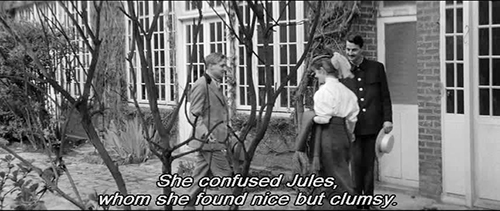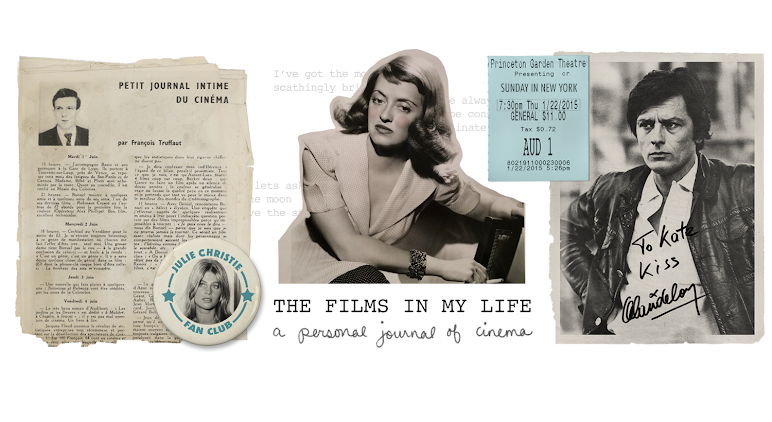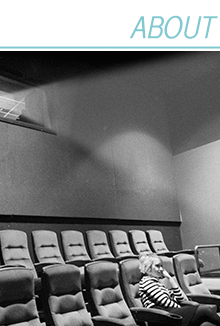
For the Beyond the Cover blogathon, I decided to read Jules and Jim by Henri-Pierre Roché. Unfortunately, like pretty much everything in my entire life, I was very well-intentioned but planned very poorly. As of this post, I only managed to finish the book's introduction by François Truffaut and the first few pages of the story. So, in an effort to still get a post up in time for the blogathon, I decided to break this up into two parts. Today I will be covering Truffaut's relationship with the book and its author. My second post will be a more detailed review of the book and how it stacks up against its cinematic counterpart.

François Truffaut happened upon the book in 1955 while perusing second-hand books at Le Palais Royal in Paris. The title "Jules et Jim" initially caught his attention, but upon reading on the back of the book that this was the debut novel from a 76 year old author he was especially intrigued: "What can a first novel written by a septuagenarian be like?"
By the first page, Truffaut had already "[fallen] in love" with Roche's writing. And this admiration is evident in the fact that Truffaut's film opens with a voice-over lifted practically word-for-word from the book:























A few months after reading Jules and Jim, Truffaut mentioned the novel in a review of The Naked Dawn, writing "One of the most beautiful modern novels I know is Jules et Jim by Henri-Pierre Roché, which gives us the lifetime of two friends and their companion in common, who love each other tenderly and with almost no clashes, thanks to a new and aesthetic moral ethic which is constantly under review. The Naked Dawn is the first film to give me the impression that a cinematographic Jules et Jim is possible."
Roché saw the review and responded, striking up a correspondence that would last until Roché's death in 1959. Before Truffaut had even begun work on his first movie, The 400 Blows, he mentioned in one of his letters that he would love to make a film version of Jules and Jim, and Roché approved of the idea -- they planned for Truffaut to eventually write the treatment & Roché the dialogue.
Unfortunately, Roché passed away before they had a chance to begin working on a script. But in the days before his death, he did get to see, and approve of, Truffaut's choice of actress for the role of his heroine, Kate (referred to as "Kathe" in Roché's letter and changed to "Catherine" in the film.) In his last letter to Truffaut he writes, "Dear young friend, your wonderful letter! ... Many thanks for the photos of Jeanne Moreau. I like her. I am happy that she likes Kathe! I hope to meet her some day, yes, come and see me when you like, I'll wait for you." Truffaut received the letter on April 5, 1959. Roché passed away four days later.

Truffaut began work on the film in 1961, but he was haunted and restless -- feeling guilty that he had put off the project for so long that Roché was no longer there to oversee production and constantly turning to the book for guidance, he "often found [himself] pushing the screenplay to one side and opening [his] copy of the novel again, making a note of several splendid phrases to 'preserve intact' and integrate into the soundtrack of the film."
Despite all of the praise and accolades Truffaut received when the film was finally released in 1962, he was still wracked with guilt, writing, "Henri-Pierre Roché was no longer there to harvest the fruits of his tree, and that was beginning to torment me. I was convinced that I was too young to make with the camera what Roché had drawn with his [pen.] The exact thing which I had most admired on reading the book was the fifty years of retirement between the living of the events and the author's narration of them... I was less than thirty years old when I made Jules et Jim, and I had forced myself to make not a young film, but quite the opposite -- an old man's film, and I wasn't sure I'd pulled it off!"
Writing this introduction in 1980, almost 20 years after the making of the film, it's clear that Truffaut's relationship with the author, and the sadness attached to making the movie after Roché had died, had plagued him for most of his life.
I can't speak to the authenticity of Truffaut's adaptation, since I have yet to finish the book, but from their correspondence it would seem to me that although Roché died without ever getting the chance to see his characters come to life on screen, he must have left this world thinking that if the movie version ever came to pass, it would be in good hands with Truffaut. And based on Truffaut's devotion to the author and his sensitivity to making sure that his film truly captured everything that he loved about the book, I have no doubt that all of his torment was for nought.



















1 comment:
Hooray! Great post and I can't wait to see part two! Thanks so much for joining in!
Post a Comment